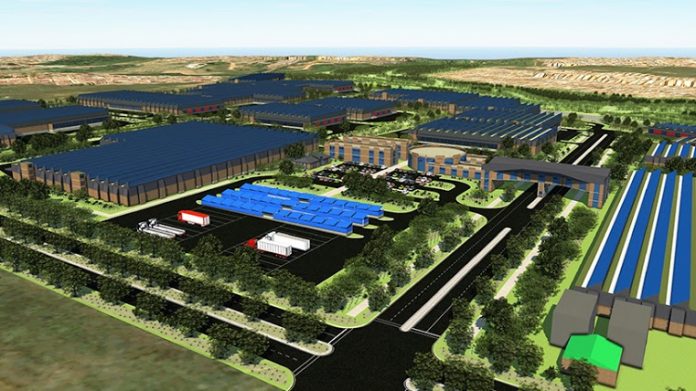President Cyril Ramaphosa conducts a monitoring visit to Tshwane Automotive Special Economic Zone (TASEZ) to assess its progress. This is after Ramphosa unveiled the project, billed as Africa’s first automobile city, in November 2019.
TASEZ is designed to help SA’s automotive sector better meet the demands of the Fourth Industrial Revolution and compete with global players. In September, it was revealed that preparatory work and installation of infrastructure for the multibillion rand project had kicked-off.
The Automobile City is being developed through a partnership with Ford Motor Company South Africa, the Department of Trade, Industry and Competition (DTIC), the Gauteng Provincial Government and the City of Tshwane. It is an extension of the Special Economic Zone of OR Tambo International Airport.
During the project inspection, President Ramaphosa was accompanied by DTIC Minister Ebrahim Patel; Gauteng Premier David Makhura; MEC of Economic Development, Agriculture and the Environment Parks Tau; The Executive Mayor of the Town of Tshwane, Randall Williams; and the management of Ford Motor Company SA.
“TASEZ fulfills the district development model’s goal of coordinating development and economic opportunities in local areas. It also aims to attract foreign direct investment and increase exports of value-added products.
“In line with the priorities of the South African Reconstruction and Economic Recovery Plan to accelerate economic reforms, reindustrialize the economy and create jobs through aggressive investments in infrastructure, industrial parks and special economic zones are rebuilding the country’s production capacity, ”notes the Presidency.
The South African government sees special economic zones as a way to stimulate job creation and investment in specific industries. The automotive sector has attracted nearly R 23 billion thanks to the 2035 Automotive Development Master Plan, which influences the industrialization effort in other sectors to improve productivity, investment and competitiveness. It also promotes localization, in particular the development of small, medium and microenterprises.




